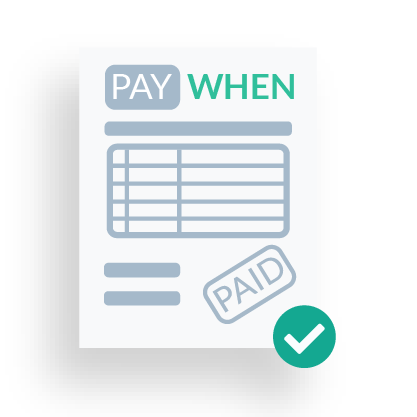Nevada Construction Contracts Overview
- Private Jobs
- Public Jobs
- Top Links

Lien Rights Can't Be Waived by Contract
Nevada statutes specifically prohibit the ability to waive lien rights by contract.
Pay-if-Paid Enforceable
Pay-if-paid clauses are enforceable in Nevada, but only under very limited circumstances.

Pay-When-Paid Enforceable
Pay-when-paid clauses haven't specifically been dealt with by Nevada courts, but are presumably enforceable to set a reasonable time for payment.

Payment Timing May Be Modified By Contract
The payment deadlines under Nevada's prompt pay laws act as the default, the terms of the contract will govern the payment terms.

Retainage May Not Be Modified
Retainage in Nevada is capped at not more than 5%, and cannot be modified by contract.
Pay-If-Paid Enforceable
Pay-if-paid clauses are enforceable in Nevada, but only under very limited circumstances.

Pay-When-Paid Enforceable
Pay-when-paid clauses haven't specifically been dealt with by Nevada courts, but are presumably enforceable to set a reasonable time for payment.

Payment Timing To Prime Contractors May Be Modified By Contract
Nevada's prompt payment deadlines to prime contractors on public projects may be modified by contract. However, all other down-chain payments must be made within 10 days of receipt of payment by the paying party.

Retainage May Not Be Modified By Contract
Retainage in Nevada is capped at not more than 5%, and cannot be modified by contract.
A construction contract outlines each party’s obligations, rights, and remedies on a project. But although the language in specific contract clauses is typically negotiable, Nevada has certain rules that govern what the agreement must include — and what is prohibited.
Keep in mind that, while Nevada’s rules for construction contract terms are written into state law, the courts determine how strictly those laws should be interpreted — and those interpretations can change.
On this page, you’ll find resources, legal information, and answers to frequently asked questions about Nevada’s construction contract and payment terms requirements.
Nevada construction contract provisions
While Nevada generally allows construction parties to set the terms of their agreement, there are some laws that regulate specific types of contract provisions. Any contract clause that contradicts the law is invalid and unenforceable.
“No lien” clauses
Nevada’s mechanics lien laws specifically prohibit the use of these so-called “no-lien clauses.” In Nevada, any provision in a contract that requires a claimant to waive or limit their lien rights is contrary to public policy, and therefore void and unenforceable.
Contingent payment clauses
There are two types of contingent payment clauses: pay-if-paid and pay-when-paid.
Pay-if-paid clauses in Nevada have an interesting history. Initially, the court declared that they are void and unenforceable. However, as the prompt payment laws developed, recent case law has declared that they aren’t per se unenforceable. Rather, such provisions are enforceable under limited circumstances and must be evaluated on a case-by-case basis to determine if they violate prompt payment or mechanics lien rights of the subcontractor.
The enforceability of pay-when-paid clauses has yet to be evaluated by the Nevada court. But given the enforceability of pay-if-paid clauses, clauses that set a reasonable time for payment will generally be found to be valid.
Payment timing clauses
The timing of payments under Nevada’s prompt pay laws for private projects acts as the default pay schedule if the contract or subcontract is silent regarding the timing for payments. On public works projects, the timing of payments to prime contractors may agree to a shorter period of time, but may not exceed the 30 days required under the public prompt payment provisions. All other payments on Nevada public works projects must be made within 10 days of the higher-tiered party’s receipt of payment; which cannot be modified by the contract.
Retainage limits
Retainage withheld on Nevada private and public projects cannot exceed 5% of each progress payment. This cannot be increased by any contract term. On public projects, there is an option for the reduction or elimination of progress payments upon 50% completion. But this is conditioned on the public entity’s declaration that satisfactory progress is being made, not according to a provision contained within the contract.
Nevada construction contract requirements
Nevada is relatively lenient when it comes to what is required in a construction contract. However, when it comes to single-family residential projects, there are quite a few required disclosures and provisions depending on the type of work to be performed.
Other types of construction contract requirements
Every prime contract for the repair or improvement of single-family residential property must include the contractor’s license number, a list of all subcontractors and supplier providing over $500 of labor/materials to the project and their license numbers, and some required disclosures; such as a lien rights notice, NV contractor licensing information, and a Residential Construction Recovery Fund Notice.
Lastly, contracts for the construction, installation, or repair of pools or spas on residential properties have a slew of additional required provisions, such as payment schedules and amounts, initial deposit/downpayment limitations, and more.

